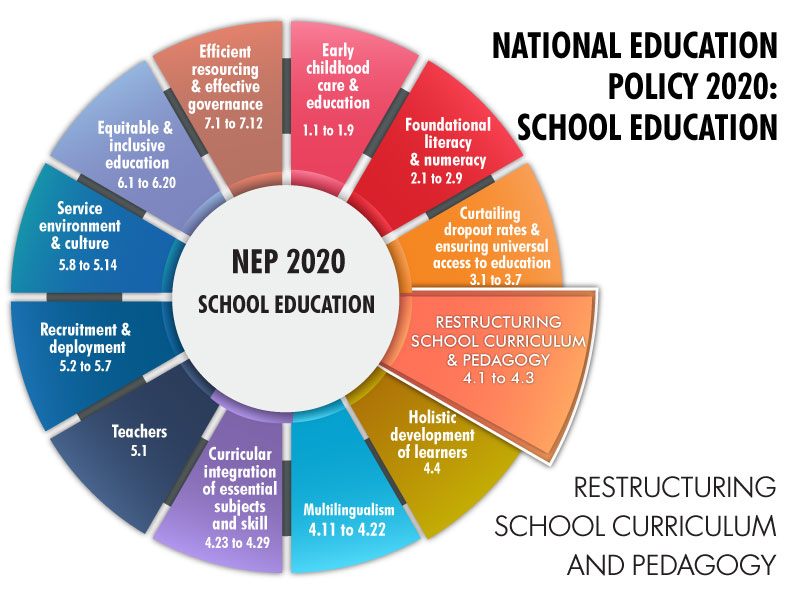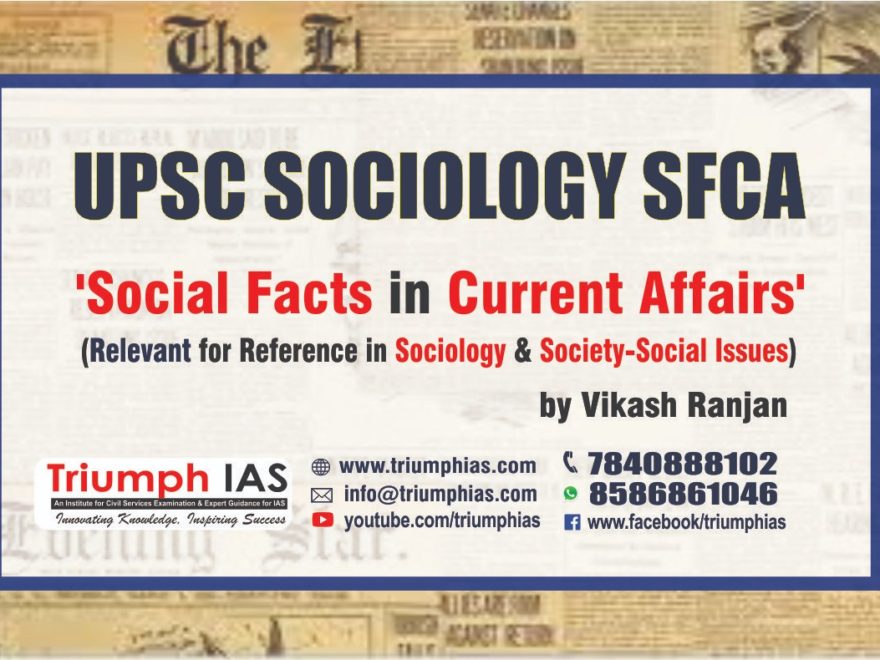NEP WILL CHANGE INDIA BY TRANSFORMING EDUCATION

- (Relevant for Sociology Syllabus: Paper 1 – Social Change in Modern Society ; PAPER-2 –Visions of Social Change in India)
- (Relevant for GS Syllabus: Paper 1- Social empowerment.)
- The Union cabinet has approved the National Education Policy, 2020. This is a seminal moment that sets out the path for education in our country for the next 20 years. In the three decades since the last National Education Policy 1986/1992 was formulated, the social, political and economic environment in India and the world has changed significantly.
- The economy has opened up, social structures have changed, there is increased participation of all groups in political, social and economic processes and communication has grown exponentially. New global challenges such as climate change have emerged, while rapid advances in technology present both opportunities and challenges to human well-being.
- India has made progress — education is now recognised as a fundamental right, access to education at different stages has increased dramatically and important curricular reforms have been made. However, equity and quality of education still remain massive challenges. While we have established some world-class institutions, we still struggle to create similarly effective learning opportunities and environments for all our students.
- This National Education Policy, 2020 is a response to these changes and challenges while being anchored in strong fundamentals of good education. This policy is also a response to the unfinished education agenda set by the two previous education policies of 1968 and 1986/1992.
- This policy provides a roadmap and action-dimensions for the transformation and reinvigoration of the education system in India, such that by 2040, India has one of the best education systems in the world.
- A strong, vibrant public education system is the foundation of democracy. This policy emphasises our public education system — it aims to nurture institutional environments that are responsive to differences and ensure that high-quality education for all becomes a reality.
- The policy focusses on high quality early childhood care and education available for all children — this is critical to lay a strong foundation for learning and development throughout life.
- School curriculum and pedagogy will be restructured into a 5+3+3+4 system based on development stages. There will be seamless integration of education across all stages. This is fundamentally different from the current structure where the early school years are completely separated from high school which is completely separated from higher education.
- There is both empirical and theoretical evidence to support the fact that holistic and multi-disciplinary education is a very sound base for good education. An integrative, broad-based holistic education will be adopted from the beginning of high school up to and including undergraduate education.
- Vocational education will be an integral part of this vision of holistic education. This will have imaginative and flexible curricular structures, creative combinations of study with multiple entry and exit points. This will be followed by rigorous specialisation at the graduate and doctoral levels.
- Curriculum and classroom processes along with culture and practices in institutions will together enable development and growth of conceptual understanding (i.e. avoid rote learning), critical thinking, human and constitutional values, life capacities and skills (eg resilience, ability to work in groups, communication) across all stages of education.
- Both the curriculum and the culture of institutions will be responsive to the local context and its needs. Diversity and context would be used as a resource for better education. Teachers are at the heart of good education — they must be valued and empowered. This policy emphasises rigorous teacher preparation through four-year teacher education programmes, continuous teacher professional development, positive working environment and enabling service conditions for teachers.
- Knowledge creation and its application is integral to the enterprise of education — high quality research and a sharp research mind is core to our education system. Equal emphasis must be given to research in the arts, humanities, social sciences, physical and life sciences, and applied fields such as technology and public health. This policy acknowledges and imagines the rich heritage of knowledge in India spanning several thousand years.
- Good education requires autonomy and empowerment — education institutions will be fully empowered. Regulation will be ‘light but tight’ to ensure financial probity, transparent disclosure, good governance and public spiritedness. There will be separation of functions — standard setting, funding, accreditation and regulation will be conducted by independent bodies to eliminate conflicts of interest.
- Resource efficiencies will be targeted without any compromise on equity and quality. Education is a public service and a public good, not a commercial activity or a source of profit. Public education will be adequately funded and fully supported to achieve the goals of this policy.
- I truly believe that as this policy gets implemented over the next 20 years, it will transform India, through transforming education.

